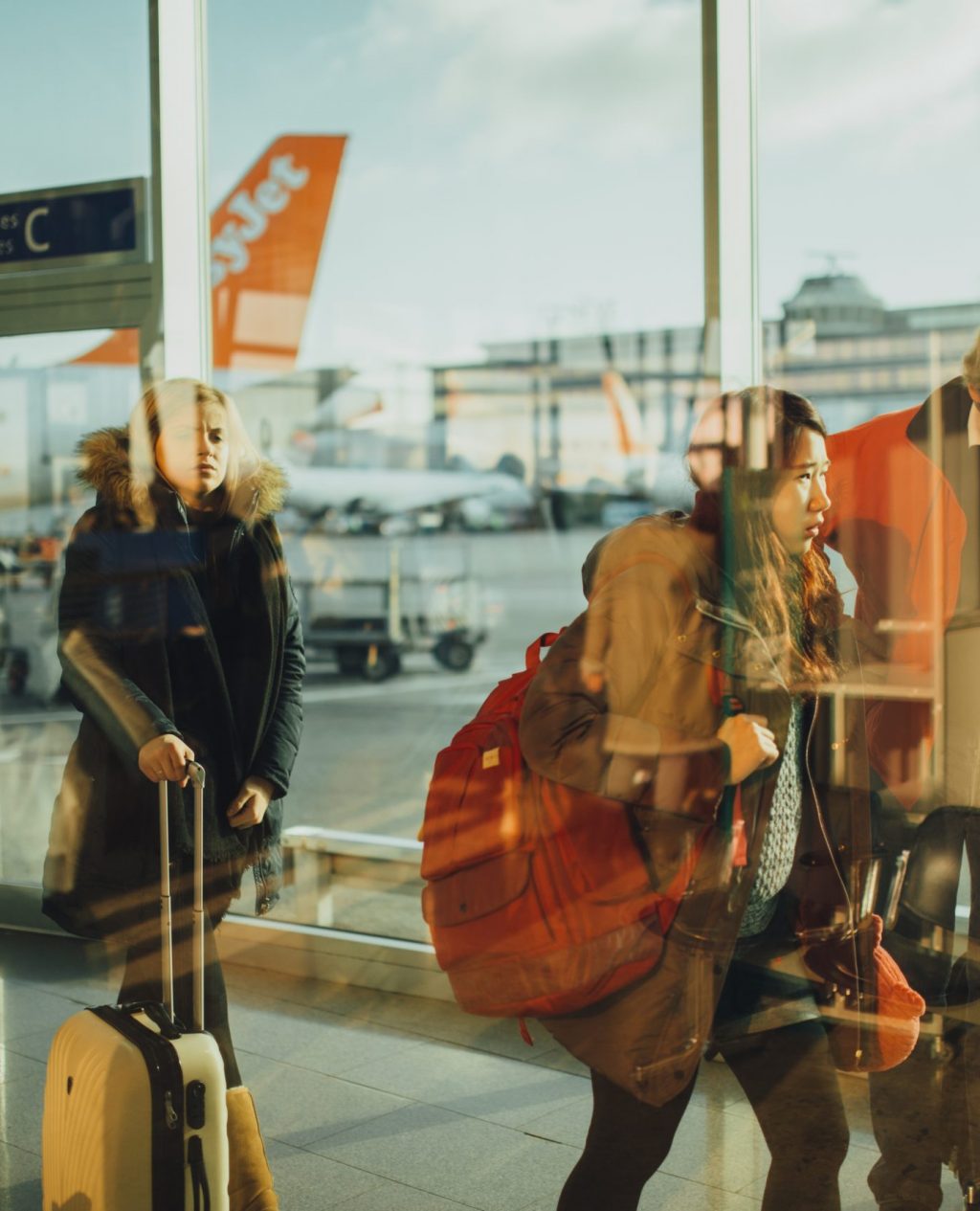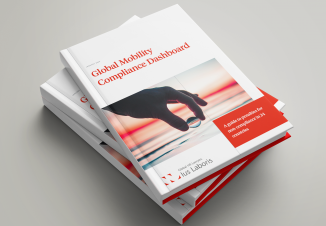

Changes to address skilled worker shortage
On 19 July 2022 the Austrian Employment of Foreigners Act was amended to facilitate the recruitment of skilled workers to secure prosperity and economic growth and counteract the increasing shortage of skilled workers in many sectors of the Austrian economy.
The main changes (which come into force on 1 October 2022) are:
Birgit Vogt-Majarek, Partner, Stefan Burischek, Attorney-at-Law, Schima Mayer Starlinger Rechtsanwälte GmbH
New rules for posting workers to Belgium
Foreign employers of employees who are posted to Belgium must be able to submit the following documents to the Social Inspectorate on request:
As of 11 July 2022, the employment contract or equivalent must include the following mandatory information: the parties’ identity, the employer’s registered office, the work to be performed, the start date and end date or duration, the remuneration, the frequency and method of pay, the employee’s daily and weekly working time.
Note that other rules apply in the road transport sector, see here.
Employers posting employees to Belgium also need to appoint a Belgian contact person to take care of contact with the Social Inspectorate. As of 11 July 2022, non-compliance with this rule is subject to a level 4 penalty (instead of a level 2 penalty) which is the highest penalty in social law.
New rules for posting in the road transport sector
On 11 July 2022, a new act on the posting of drivers in the road transport sector entered into force (implementing EU Directive 2020/1057). The changes include:
Sophie Maes, Partner, Claeys & Engels
Changes to sporting visas
On 25 August 2022, the National Council of Immigration published Resolution No. 47, regulating visas and residence permits for sporting activities. In addition to professional athletes, it also covers coaches, physical trainers, athlete trainers, professional football coaches, and all other professionals required for the relevant sport.
Under Resolution 47, athletes can be granted a residence permit for a minimum of three months and a maximum of five years, renewable for similar periods. For the other related professionals, the residence permit is granted for a maximum period of two years, at the end of which it can be changed to a residence permit for an indefinite term.
The visa can be applied for at the Brazilian Consulate, subject to the approval of a prior residence authorisation by the Ministry of Justice. Alternatively, if the migrants are already in Brazil, they can request a change of their visitor visa to a residence permit.
Visa and residence rules for Ukrainian migrants
On 30 August 2022, the Ministries of Justice and Foreign Relations published Interministerial Ordinance No. 30, on granting visas and residence permits to Ukrainian nationals and stateless people who have been affected or displaced by the armed conflict in Ukraine.
Initially this Ordinance will be in effect until 3 March 2023 (without prejudice to other measures that could be adopted to protect these individuals.
The validity of the visa (i.e., the period within which to enter Brazil) is 180 days, and the residence authorisation lasts two years. If already in Brazil, the applicants can change their visitor visa to a residence permit for a two-year period. In both cases, at the end of the two-year term it is possible to apply for an indefinite term residence permit, subject to, among other conditions, not being absent from Brazil for longer than 90 days in any 12-month period and submitting proof of means of subsistence.
To apply for this type of visa/residence permit, the requirements for documentation are more flexible. The applicant has the option of submitting a self-declaration if a required document (such as criminal record, or birth or marriage certificate) is not available.
Maria Luisa Soter, Consulting Partner, Veirano Advogados
Current COVID-19 travel restrictions
As of 1 September 2022, non-resident foreign nationals entering Chile are no longer required to have their vaccinations locally approved (Homologación de Vacunas). Only a vaccination certificate issued by the country where the vaccination was carried out and their identity document is now required to enter Chile. This vaccination certificate will be equivalent to the Mobility Pass for non-resident foreign tourists.
If the non-resident foreigner has not had a complete course of vaccination, s/he must present a negative PCR test result that is a maximum of 48 hours old on entering the country.
Finally, the C-19 affidavit is no longer required for non-resident foreign nationals entering the country. However, random PCR tests will still be carried out on arrival in Chile at the airport.
Marcela Salazar, Partner, Munita & Olavarría
Colombia introduces a digital nomad visa
The Ministry of Foreign Affairs has introduced several changes to the Colombian immigration system. These changes will come into force 90 days after the publication of the resolution in the official gazette, which took place on 22 July 2022.
The changes include the introduction of new visa types including:
The resolution also introduced changes to the visa processing time extending it to 30 calendar days for visa analysis and ten business days for the issue of the electronic visa.
The changes also mean the residence visa is no longer indefinite. Visa holders must request a visa transfer within two years.
The residence visa for foreign investment is also moved to the migrant visa category, losing the benefits of residence visas.
Resolution 5477 of 2022.
Diana Monsalve, Associate, Catalina Santos, Partner, Birgard Urrutia
Modernising procedures for non-EU nationals
After re-evaluating the criteria for immigration permits in the Aliens and Immigration Regulations of 1972 to 2013 (the Regulations), the Ministry of Interior proposed amending the criteria for granting immigration permits to immigrants who wish to reside permanently in Cyprus to the Council of Ministers. The aim of the proposed amendments is to be in line with modern realities and needs for granting permits.
The Ministry of Justice is now authorised to draft a bill and present it to the Parliament. The bill will aim to establish criteria associated with the economic stability of foreign nationals who want to secure an immigration permit for Cyprus, while improving the procedure for self-employed candidates, but raising the bar for newcomer pensioners.
Antonia Frangou, George Z. Georgiou & Associates LLC
Public interest migration rules
Third-country nationals may be granted a national visa, if there is a justified public interest. This can be presumed from bilateral agreements or in specific cases (in particular foreign policy, defence, internal security, economy and development, investment, education and culture), can be based on a decision from the public agency concerned.
The individuals concerned must provide provide the Diplomatic or Consular Authority with the documents required by law and attend an in-person interview.
For example, the following would be entitled to a visa on this ground:
If necessary, the Ministry of Immigration and Asylum proposes, in cooperation with the Special Secretariat for the Coordination of Stakeholders, investigating the possibility of using this category of national visa and subsequently a residence permit for foreign workers with international organisations and large NGOs when they cannot otherwise be transferred. The proposal will be made by the Directorate of Immigration Policy of the Ministry of Immigration and Asylum.
The Immigration Code Manual containing these provisions was updated on 25 August 2022.
Georgia Lamprakou, Associate, Kremalis Law Firm
Changes affecting qualified employers employing third-country workers
During the COVID-19 state of emergency, the legislator permitted certain ‘qualified employers’ to employ third-country nationals on a temporary basis. This was not previously allowed by law. This temporary emergency rule was replaced by permanent, non-emergency rules this summer.
Qualified employers also enjoy other benefits, since the authorisation procedure for qualified employers (which would otherwise require a licence) is greatly simplified.
Additionally, in certain cases, no licence is required if the employee of the qualified employer would work in a shortage occupation and is from one of the following countries: Belarus, Bosnia and Herzegovina, Northern Macedonia, the Philippines, Indonesia, Kazakhstan, Mongolia, Montenegro, Vietnam, Russia, Brazil, Georgia, the Kyrgyz Republic, Venezuela or Colombia.
Examples of shortage occupations include: architect, chemical engineer, software engineer, cleaner, bricklayer, carpenter, tiler, cook, waiter, bus, tram and train driver, shop assistant etc.
Under the previous regulation, which is still in effect, no licence is required for employers of Ukraine and Serbia if they work in shortage occupations.
Since the status of qualified employer is a distinguished one, the relevant legislation sets out the conditions for obtaining the status. These include the provision of a financial guarantee, a stable business background, taxpayer qualification free of public debt, a transparent ownership structure and freedom from national security risks etc.
Hédi Bozsonyik, Partner, Attorney-at-Law, Máté Kiss, Junior Associate, Szecskay Attorneys at Law
New information requirements for secondments
On 13 August 2022 a new legal provision, commonly known as Transparency Decree, introduced a number of information obligations on employers, some of which must be given to posted employees.
In particular, employers who post employees abroad have to provide them – in writing and before the beginning of the posting – with information on any change of certain work conditions (listed in the decree) and information on:
Employers must therefore review their templates to ensure they comply with the new rules.
Melania Soncin, Associate, Toffoletto De Luca Tamajo e Soci
Visa-free stay for Iranian citizens
From 8 July 2022, nationals of the Islamic Republic of Iran, People‘s Republic of China and the Republic of India can enter and exit Kazakhstan on a visa-free basis. Their period of stay in Kazakhstan must not exceed 14 calendar days from the moment of crossing the state border, or exceed total 42 calendar days within each period of 180 calendar days, see here.
Yuliya Chumachenko, Partner, AEQUITAS
Poland. Business Harbour is now available worldwide
The Poland.Business Harbour (PBH) visa is now available to all highly qualified employees from the IT / New Tech sector from around the globe. Until now, only citizens of Georgia, Armenia, Russia, Ukraine, Belarus, Moldova and Azerbaijan were eligible to apply for this visa.
The main aim of the PBH programme is to help specialists from the IT / New Tech sector and their families, as well as start-ups and other companies, with relocation to Poland. To make this process easier, a new type of visa was introduced removing the obligation to receive a prior work permit and facilitate setting up a business activity in Poland.
The process is much simpler than the one for regular visas: applications are accepted at Polish consulates abroad and require fewer documents.
It is important to underline that PBH visa is not for the purpose of remote work from Poland for the benefit of foreign entities, however due to lack of prior work authorisation required, it often plays this role.
Michał Kacprzyk, Senior Associate, Head of Immigration & Global Mobility Practice, Raczkowski
Simpler employment for managers from third countries
Managers from third countries can be employed in Slovakia under simpler conditions than they were in the past. From 23 July 2022, they can apply for a national visa instead of temporary residence (which is more time-consuming).
The first and main condition for granting national visas is that the foreign employer has established an organisational unit or a business unit of a foreign entity in Slovakia.
Provided the foreign employer meets this condition and the manager has signed an employment contract with its Slovak entity (or a written promise of a contract) and his or her wage is higher than double the average wage in Slovakia (according to statistics valid two years ago), s/he should be granted a national visa.
National visas can be granted for a maximum of one year and extended repeatedly.
The national visas can also be granted for the manager’s spouse and children younger than 21, or not older than 25 if specific conditions are fulfilled (e.g., studying). With these visas, they can work or study in Slovakia.
It is worth noting that national visas cannot be granted to foreign nationals who already hold valid temporary residence permits.
The full wording of the regulation is available here (in Slovak).
Dajana Csongrádyová, Partner, Marek Bugan, Senior Associate, NITSCHNEIDER & PARTNERS, advokátska kancelária, s. r. o.
Updated visa conditions
On 16 August 2022, Spain introduced updated visa and immigration rules, relaxing some conditions for the grant of visas. The main changes include the following:
Student study permits will allow the holder to work, in either a self-employed or employee capacity up to 30 hours a week.
The financial requirements for family reunification permits have been eased.
Renewed temporary residence and work permits will be valid for four years and allow employee and self-employed work. Fixed-term residence and work permits will cease to be valid on 27 July 2023.
Exceptional circumstances permits are introduced on employment, social, family, training and national interest grounds, each subject to specific conditions.
Temporary and long-term residence permits can now be terminated if the holder is convicted of a trafficking offence.
Conditions for moving from a study or training permit to a residence or work permit are relaxed.
See here for more details.
Mounia Jrabi, Executive Immigration Practice Leader, Sagardoy
Uncertain EU immigration status for Ukrainians out of visa-free days
Many Ukrainians who left Ukraine due to the hostilities are unsure of their immigration status when their 90 visa-free days are exhausted and approval for temporary protection has not been granted. At present, it is uncertain whether they can stay, travel and enjoy other rights in a specific EU member state and the EU as a whole.
New rights for Polish citizens in Ukraine
The Parliament has adopted a law introducing special guarantees for Polish citizens in Ukraine. According to the law, Polish citizens have:
The Diia digital platform
Temporary and permanent residence permits for foreign nationals are now available on the Diia application platform, if the permit was issued after 2018).
According to the Government decision Ukrainian citizens will be able to use the Diia application platform (which is accessible from smartphones) and electronic documents to receive services abroad. Diia has already been recognised in 58 countries worldwide.
Launch of new Scale-up immigration route
The new Scale-up route is available from 22 August 2022.
Initial sponsorship is required from an approved scale-up business with at least three years of average revenue or employment growth above 20%, and at least ten employees at the beginning of that period.
Applicants must be sponsored for the first six months of their immigration permission, in a graduate level job with a basic salary above GBP 33,000, GBP 10.58 per hour or the going rate for their occupation. They must also meet an English language requirement and financial requirement.
Permission is granted for two years initially, with a three-year unsponsored extension available. Settlement is possible after five years in qualifying categories. Salaried earnings above GBP 33,000 must be maintained for extension and settlement.
Andrew Osborne, Partner, Lewis Silkin


